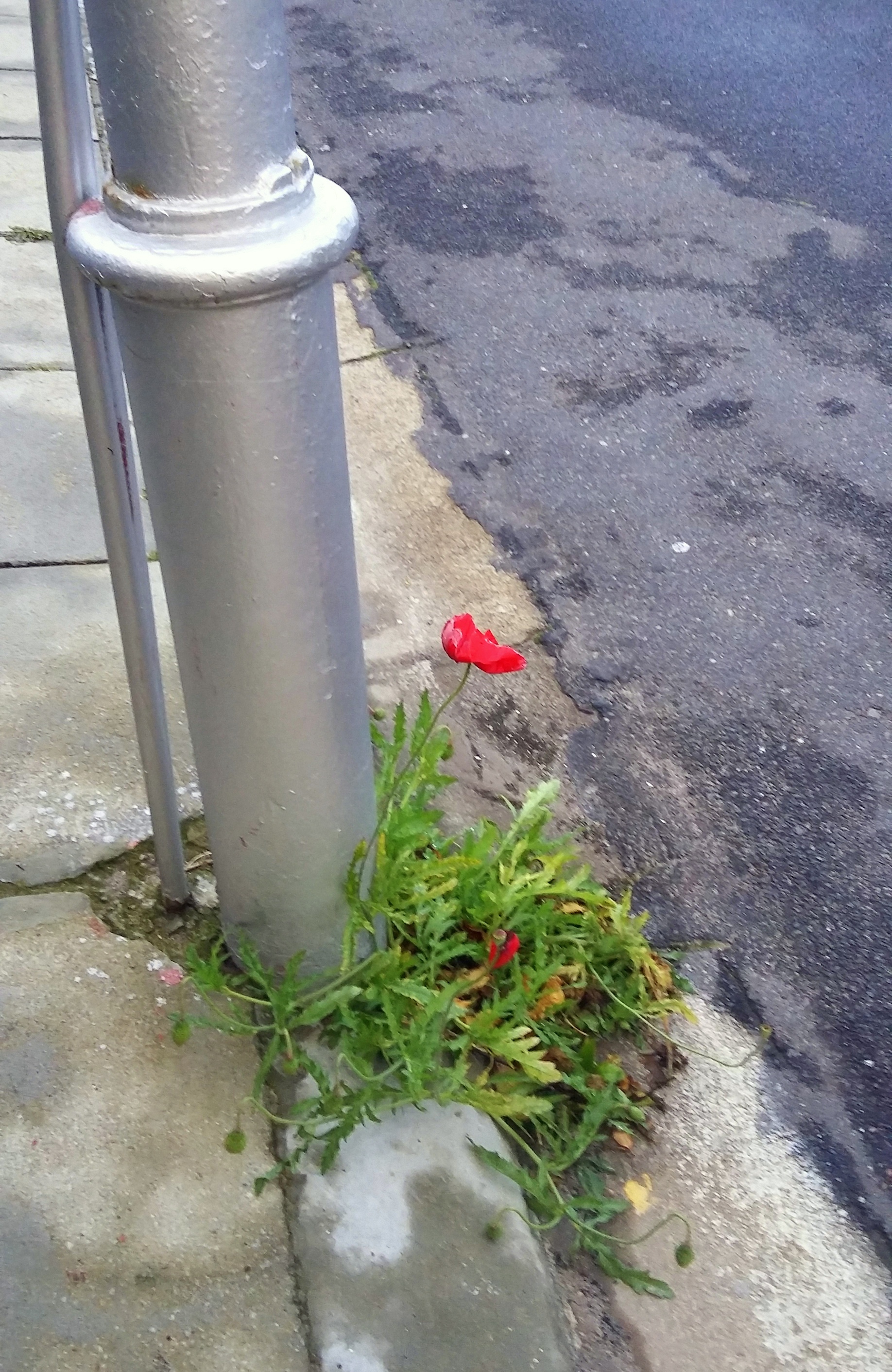we are the dead
Thursday, 27 September 2018 10:30 am
My road has outbreaks of volunteer poppies, they spring up in the oddest cracks and corners as soon as the weather starts to warm up. I love them and find them astonishingly poignant, possibly because they function as a really very overcoded symbol, which I shall proceed to unpack because you can't stop me, mwa ha ha!
Part of it is, I think, the colour: the splash of defiant red which is particularly brilliant against tarmac or concrete. It's a brave little flag, waving for life and growth in the teeth of a sterile cityscape, and doing so with insistent cheer and profligate overstatement of hue. It's also a lone standard-bearer, speaking directly to our humanly sentimental appreciation of the small, solitary individual facing off against overwhelming odds. It's so unlikely, this little fragment of life, struggling through the stonework, finding tiny cracks in the system through which to express itself. It undermines the monolithic constructedness of the city in a way which speaks directly to anyone who feels alienated and helpless in the face of the impersonal scale of contemporary existence.
Poppies also, of course, have the very obvious symbolism of Flanders fields and the way they have come to function as a reminder of the wholesale slaughter of the First World War. They are about death on a number of levels, not just the blood-red of their flowers or their growth in the fields of dead. Their medicinal properties associate them with a deep, unnatural, deathlike sleep, and with the corrupt, destructive decadence of opium and heroin. As a species their physicality is strangely fragile, their stems easily broken, their petals paper-thin and delicate - a visual reminder of the tenuous nature of life which paradoxically strengthens their impact. They grow in Flanders from the dead, but they make life out of that death, and brandish it defiantly at the world. That paradox is, I think, also at the heart of their impact as lone volunteers in an urban landscape, fragile but alive among the concrete.
I love poppies, but weirdly have no desire to grow them for myself, and I think that's precisely because they're so much more interesting a symbol when they're growing themselves, for their own sakes, where they shouldn't be able to. They are flags of unlikely hope.
(My subject line weirdly isn't David Bowie, it is, of course, John McCrae's "In Flanders Field", although Bowie has a particularly weird song by that title on "Diamond Dogs". Music from which was not, as far as I can tell, implicated in the really lovely concert we went to on Saturday, which was Bowie (mostly the early classics) reinterpreted as full-on Baroque by a Baroque quartet. Right up a number of my alleys, particularly the genre-bending ones, their German Baroque rendition of "Moonage Daydream" caused me untold unholy glee).